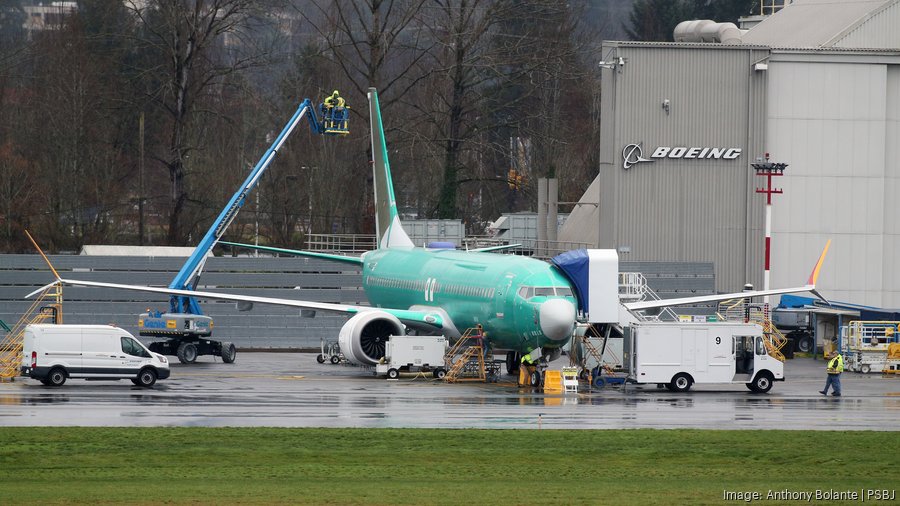Listen to this article 3 min
The Boeing Co.’s (NYSE: BA) deliveries from its Renton 737 factory have been, in the words of its CEO David Calhoun, “slow and lumpy” amid the company's quality-control crisis — and there’s little expectation that will change in the coming months.
Boeing has been putting into effect new inspection protocols for its fuselage supplier, Wichita, Kansas-based Spirit AeroSystems (NYSE: SPR), which has played a significant role in many of the production errors that have put Boeing in the hot seat with regulators, customers and the flying public. That process is expected to last another 60 days, after which it is confident it will receive “clean fuselages” that will allow it to speed up production, calling it “the big productivity driver in the Renton factory.”
“We're quite encouraged at just how clean they are and how quickly they move through our production cycle, substantially better, faster than before,” he said on the company’s first quarter earnings call Wednesday.
He added that toward the end of the second quarter “we will know exactly what numbers are coming out of Wichita and what expectations are. We are not going to rush it.”
The company delivered just 83 airplanes in the first quarter, including 67 737 Max planes built in Renton. That facility employs a majority of the Arlington, Virginia-based company's 66,000-person workforce in Washington state.
The Federal Aviation Administration set a cap on how many Max planes Boeing can produce in the wake of an emergency landing by an Alaska Airlines flight after a panel in its fuselage blew out during its ascent on Jan. 5. That restriction has turned out to be irrelevant, as Boeing is “deliberately slowed production below 38 per month to incorporate improvements to our quality and safety management systems, including reducing traveled work and addressing supplier non-conformances,” Chief Financial Officer Brian West said on the call.
Boeing updated its supplier delivery schedules but said it would keep their pace ahead of final assembly to keep work running in the correct sequence and minimize opportunities for production mistakes.
Discussions are ongoing in the company’s bid to acquire Spirit, which was originally a Boeing outpost, and West said the company expects the deal to go through. In the meantime, the jet maker has advanced Spirit $425 million to help it stabilize production.
Boeing's first quarter results, meanwhile, were “less dire than expected,” Cai von Rumohr, who leads aerospace research for TD Cowen, said in a note to investors.
That’s largely due to Boeing’s defense business, which made up some of the difference for losses elsewhere in the company. Its commercial airplanes division revenue tumbled to $4.7 billion in the first quarter, a 31% drop year over year, while the unit's net losses nearly doubled over the same period to $1.14 billion.
The continued robust demand for jets is favorable to Boeing, Bank of America Analyst Ronald Epstein wrote in a research note Wednesday. However, he later noted that the hit to the company’s reputation in the wake of the Alaska malfunction and other production errors could interfere with its ability to capitalize on the market demand.
More pressingly, its planned leadership transition — the company announced last month that Calhoun will step down at the end of the year — could introduce more disruption, Epstein said.
Calhoun characterized Boeing's production issues as a short-term challenge “in the context of aviation,” which operates on decadelong timelines. But when it comes to who will replace him as the company’s top executive, he turned his attention to its net jet program.
“When you get big development programs wrong, you pay a price, and you pay it for a long time, and I know an awful lot about that,” said Calhoun, who assumed the CEO role in 2020 as the company sought to recover from two devastating crashes of its most popular jet that killed 349 people. “So, my view is that next leader has to be prepared to make smart long-term decisions and get the development programs right.”
He hinted that he was backing “an internal candidate” as the board conducts its search, presumably Chief Operating Officer Stephanie Pope, who was appointed CEO of Boeing’s commercial airplanes arm in March after Stan Deal departed.





